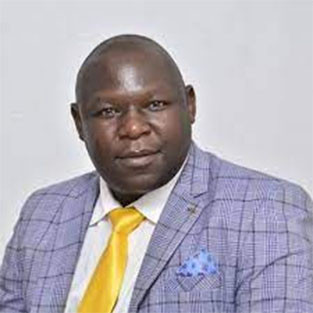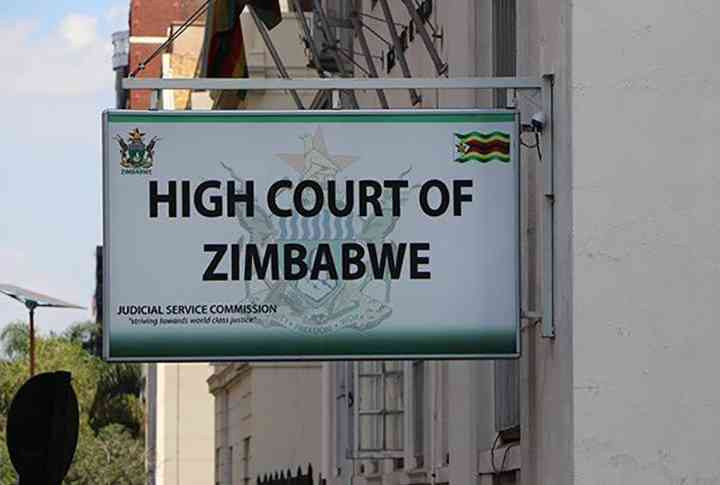
Over the years there have been many claims of cures for HIV and Aids. There was the famous African potato, mocrea, Epikaizo, Ngoka, Moringa, and lately the most controversial Aguma. All these sparked their fair share of controversy before they faded away, together with their “founders” who quietly sank into oblivion.
News in depth BY PHYLLIS MBANJE
In the early 20th century former freedom fighter Richard Ngwenya, who claimed to have studied herbal medicines in the former Soviet Union, United States of America and Mexico, said he had found natural medicines that reverse the symptoms of HIV and Aids.
He is famed for transforming a dairy farm into a herbal plantation, growing various plants which he claimed were cures to chronic diseases like HIV/Aids, asthma, diabetes, ulcers, arthritis, meningitis and cancer.
Ngwenya claimed HIV could be treated, but said bad information, bad treatment, fake hygiene and bad nutrition were some of the causes of continued illnesses.
Anti-retroviral drugs, according to Ngwenya, caused blood coagulation and therefore did not help much. The answer, according to Ngwenya, was to de-acidify the body as fungi caused high acidity levels in the body.
“One has to avoid milk, yeast and high acidic foods so that the body can have a pH range of 7.6-7.8,” he said.
Ngwenya was one of the first people to ship in mocrea (Tai Sheng), a Chinese herbal palliative. He pestered the then health minister Timothy Stamps to allow the herb to go for clinical trials. That never happened and he ended up registering as a herbalist, giving him a licence to dispense medicinal plants and herbs.
- Chamisa under fire over US$120K donation
- Mavhunga puts DeMbare into Chibuku quarterfinals
- Pension funds bet on Cabora Bassa oilfields
- Councils defy govt fire tender directive
Keep Reading
Mocrea was being sold for Z$200 which was at the time equivalent to US$30. This amount translated to almost half the salary of an average worker.
However, over the years Ngwenya has gone under the radar along with his James Mobb Immunity Enhancement Centre. The flamboyant facility was in the then leafy Avenues area along Josiah Chinamano Avenue.
An American author, David Simmons, who later penned the book Modernising Medicines in Zimbabwe: HIV/Aids and traditional healers, described his visit to the clinic as epic.
“The James Mobb Immune Enhancement Clinic is a large, handsome white building set off a tree-shaded street in the Avenues by an expansive enclosed front yard. I marvelled at the beautifully carved wooden doors with their stained glass windows.”
But a visit to the place this week was in total contrast to the description by Simmons.
The building is now lying in ruins, the white paint peeling off in ugly chunks. The gate swings precariously on its hinges and the back yard is in a serious state of disarray.
Further down, in what used to be a garage, now stands a “kitchen” being run by food vendors. An elderly woman is busy with her pots and customers are already filling up the smoky space. On inquiring about the whereabouts of “Dr Ngwenya”, she says the details are in the letter box by the gate.
True to her word, inside the rusty letter box is a large piece of paper with an address in Eastlea and a phone number. The note has seen better days and is smudged with dozens of fingerprints.
Upon calling the number, a pleasant woman’s voice answers the phone and on being asked about the whereabouts of Ngwenya, she says he is in India.
Health stakeholders who spoke on these HIV cure claims said they worried a lot about patients defaulting on their ARV medication.
“The false claims may reverse the huge gains that Zimbabwe had made in terms of not only reducing new HIV infections, but also limiting deaths due to Aids,” said Itai Rusike of the Community Working Group on Health.
Last week, Walter Magaya, the founder of Prophetic Healing and Deliverance (PHD) Ministries, claimed to have found an HIV cure — a herbal drug he called Aguma.
Human rights doctors threatened to sue if Magaya failed to retract his statement and activists urged people taking antiretroviral drugs not to be swayed by these claims and to continue taking their drugs. Magaya keeled under the mounting pressure and retracted his statements, apologising in the process.
On Friday last week he was arrested and hauled before the courts. Another claim to fame had gone down, but Magaya is not likely to be the last of these “miracle” Aids cure discoverers.
“Walter Magaya’s claim is not the first that rogue prophets, conmen and traditional healers have falsely made to have found a cure,” said Rusike, adding that even the likes of Benjamin Burombo had laid claim to an Aids cure, but that had amounted to nothing.
Fungisayi Dube of the Citizens Health Watch said the battle against HIV had taken too long and the “desperation that comes with being HIV positive has left many people gullible to anything that promises them life without the virus”.
Another herb that turned out to be just a fab was Epikaizo (it apparently means the shadow of God). It was claimed that it inhibited and eliminated the viral antigen. The Standard visited the offices of the distributors of this herb, Alternative Medicines Pharmaceuticals (AlMed Pharm), in Harare’s Greendale suburb.
The “miracle drug” was going for US$120 for a month’s supply.
“After the full course of treatment, a once HIV-positive person will test negative and this condition is referred to as ‘remission’,” read part of the leaflet.
However, the regulatory body said Almed had jumped the gun by selling the drug first without going through the standard procedures of testing.
“Treatment literacy is an option as well as opening up of research. Make it easy for people to bring ideas on board and their innovations. Create a fair room for testing so that people do not feel closed out,” said Dube.
She also recommended creation of laboratories to provide more avenues for clinical trials. “We need to demystify the field of medicine by opening up spaces,” she said.
Rusike called on the government to remain committed to ensuring that people living with HIV and Aids have access to social services. He also said an intensive information, education and communication campaign on HIV and Aids treatment involving all sectors should be initiated.
“There is no cure for Aids yet and when an individual of great power and influence claims otherwise, human health is put at risk,” said Rusike.
Head of the Licensing and Enforcement Division of the Medicines Control Authority of Zimbabwe (MCAZ) Richard Rukwata said the greatest challenge was that the people of Zimbabwe were too eager to try anything presented by anyone as a cure for any condition.
“Unfortunately, there are a lot of casualties of such practices. There are many cases of renal failure as a result of toxicity from the use of unapproved herbal products, and sadly when they get worse, such patients then present to hospitals but for some, it will be too late as damage to kidneys is often irreversible and fatal,” he said.
Rukwata said the process of approving complementary medicines included submission of an application with the requisite supporting evidence, as prescribed in the relevant statutory instrument.
“Samples of the product must also be submitted, which will be analysed by the authority’s laboratories depending on the contents,” he said. “Only after all these procedures have been followed and the authority is satisfied that the product is not harmful, and that it is of good quality will authorisation to market a complementary medicine be granted.”
The registration processes for products that claim to cure any particular condition are quite stringent. Any product for which a cure is claimed will be taken through a rigorous review process and analytical process requiring extensive clinical data to prove effectiveness. As a consequence, such products will not be registered as complementary medicines, but as allopathic medicines.
“It is important to note that the current regulatory framework for complementary medicines does not allow for the stating of any claims, this is because no efficacy data are required for such products,” said Rukwata.
Rukwata said so far there were no herbal products for treating HIV that have been approved by the authority.









